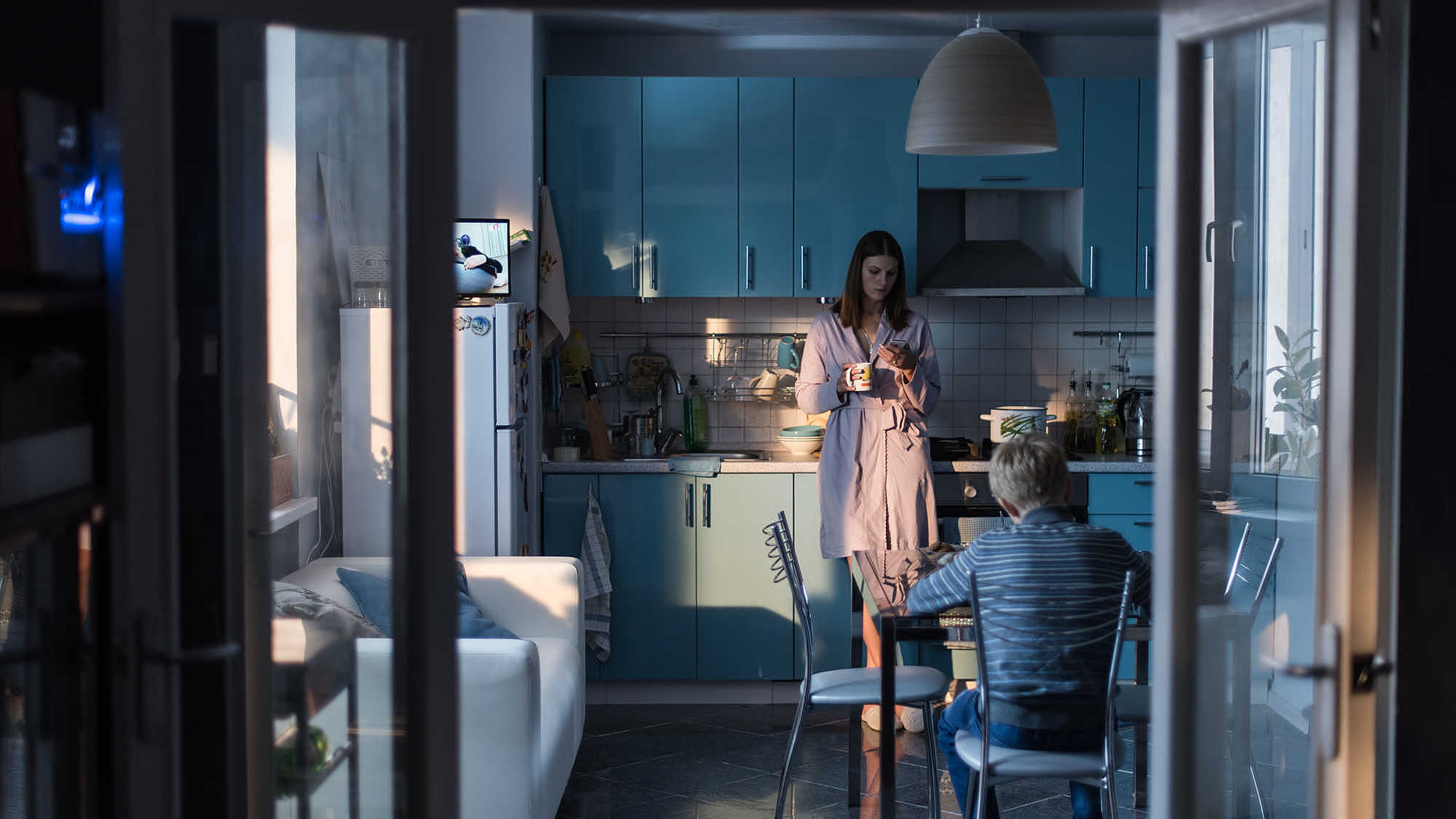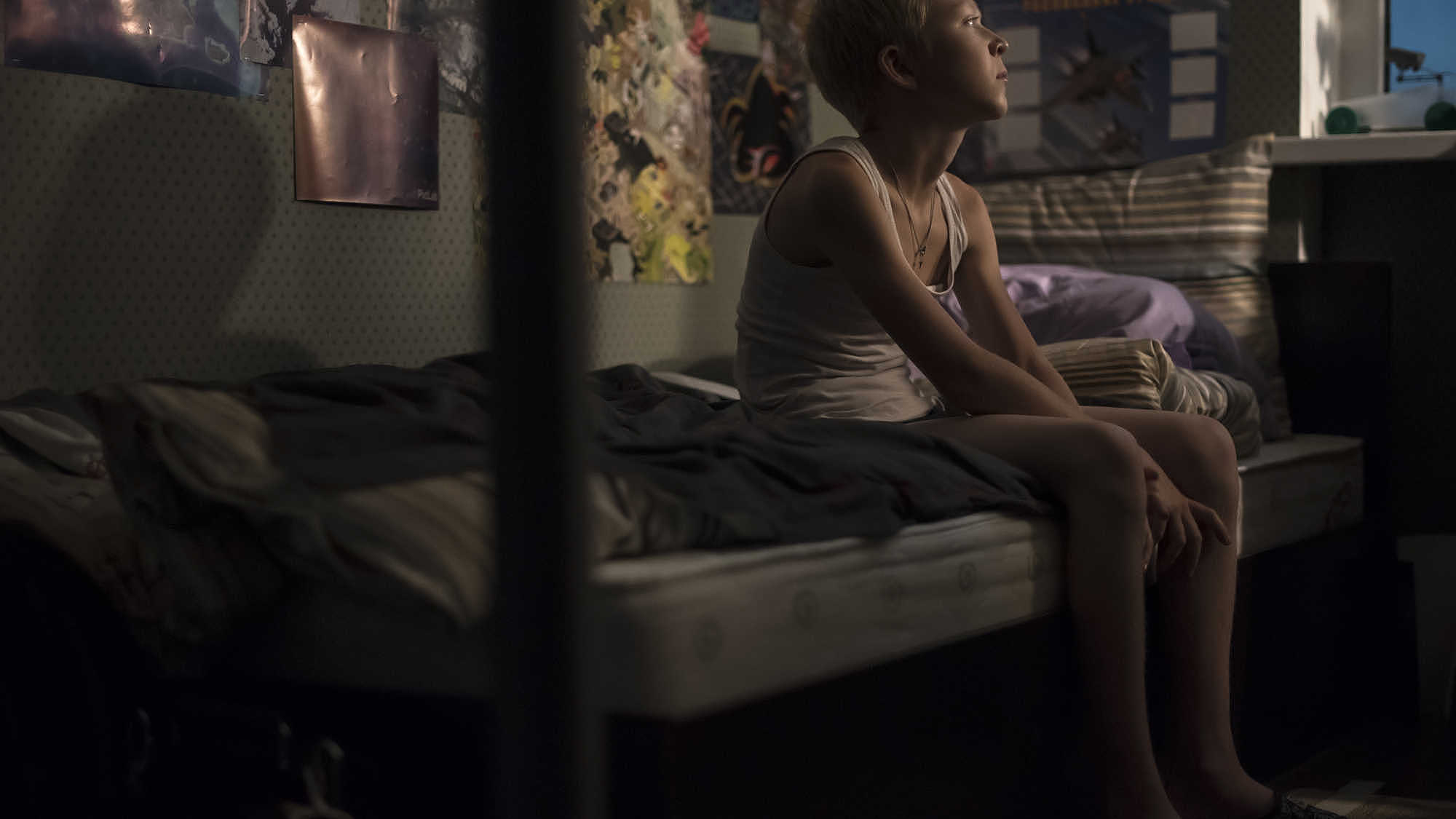Family Tatters: A Review of Loveless
Without love to temper them, disappointment turns to blame and frustration to vitriol in Andrey Zvyagintsev’s stark depiction of one family’s implosion and the tragic after-effects.
Without love to temper them, disappointment turns to blame and frustration to vitriol in Andrey Zvyagintsev’s stark depiction of one family’s implosion and the tragic after-effects.
I joked on Twitter, just before my NZIFF screening of Loveless, that I was predicting “an upbeat comedy of errors”. Of course, being a Zvyagintsev veteran (and fan) I had no such expectation, but I don’t think I was ready for something quite so unrelentingly grim. That sounds strange, even to my ears, coming off the back of the completely tragic downward trajectory of his last (also excellent) film, Leviathan. I think the difference between the impact of the two is one of scale. Leviathan presents a small town man fighting an implacable bureaucratic system – given face in the form powerful individuals, including the corrupt mayor and the local Orthodox Bishop – while in Loveless, ‘the system’ is where the main characters find their most reliable support when shit gets real.
About a couple fighting each other and, ultimately, fighting themselves, Loveless is, like the director’s 2011 feature Elena, a far more personal tale. And yet even Elena feels like a larger story, with its narrative of poverty meeting wealth and the resulting complexities around financial support and inheritance. It is this movement in uncomfortably familiar feeling territory that gives Loveless such an incisive edge. We may not be standing off against corrupt government officials, or having a Sense and Sensibility-like battle over division of estates, but we sure as hell face struggles in our intimate relationships and, at times, stare into the uglier aspects of our own nature.
Zhenya and Boris are on the precipice of divorce – both already have newer, more ‘fulfilling’ partners – and neither can muster much in the way of sympathy for each other, let alone for their 12 year old son Alyosha. Overhearing a particularly vicious argument one evening, where neither parent expresses any desire to want to keep him, the poor lad disappears the following morning, prompting a manhunt and putting life on hold for the adults. The policeman assigned to the case, and the volunteer search and rescue team who are organising the hunt for Alyosha, witness the uneven blend of concern and callousness from both parents, and seem unsurprised.
There is something so utterly depressing about the complete lack of empathy displayed by the main characters. On the one hand, many of Zhenya and Boris’s actions and attitudes cut close to the bone, in that they display some of the less attractive behaviours and thoughts any parent (or child-free person) might have in their darkest moments. From something as small as having your attention quite clearly on the your mobile when supposedly communicating face-to-face with your child or partner, to something as significant as explicitly equating your child or partner with your felt lack of freedom, and the resulting sense of dissatisfaction. It is difficult not to see both Zhenya and Boris as awful, self-absorbed people, while at the same time feeling a twinge of guilt about something you recognise in yourself. Only, where we don’t act on all these dark impulses, this pair live in that space the entire time, and it is bloody confronting to sit through.
I initially felt like Loveless was a lesser venture than the director’s previous works Leviathan and The Return, but the fact is that this movie keeps running around my head. Visually, Loveless eschews the scenic beauty of the rural locales in those former films (that beached whale skeleton in Leviathan is a pretty iconic/metaphoric image!) for the closed-in urban settings of Moscow, and a noticeably cool colour palette. The soulless aesthetic of aspiring middle-class architecture and interior design, along with the crumbling innards of Stalkeresque abandoned buildings, is rendered beautiful by way of regular cinematographer Mikhail Krichman’s frame but does nothing to lighten the mood of the film.
Writing and performances are uniformly sharp, with Maryana Spivak a standout as she ping-pongs Zhenya between bitter vitriol and self-satisfaction. She is initially painted in the harshest light – ‘Oh no, a mother who doesn’t feel overwhelming love for her child! How Terrible!’ – but the film slowly subverts this notion as it fleshes out Boris’s (Alexey Rozin) less demonstrative form of neglect and near total ceding of responsibility for his son. Alexey Fateev also gives a nuanced performance in his support role as the pragmatic, world-weary volunteer search and rescue team coordinator. Zvyagintsev’s pacing and shooting is as patient as ever without feeling ponderous and he pulls together a devastating picture of modern life in Russia’s capital.
On the surface, the child Alyosha appears to be the character referenced by the title but, as the film’s narrative circles back onto itself, the pervasive futility of all the characters (purely self-focussed attempts at happiness, resigned to despair rather than hope) makes it clear that it is actually the entire world of the film itself that is Loveless. Zvyagintsev’s key thematic concerns remain consistent: life is a grim, awful state of affairs when we – either individually or systemically – deny each other our basic humanity.
I see this reflected in some of the attitudes surfacing in Aotearoa toward beneficiaries, in response to Green Party co-leader, Metiria Turei’s recent revelations of poverty-driven decisions in her earlier life. One can only hope that we can find ways to express and foster love in our own situations. That we can find peace and happiness within ourselves rather than blaming others for not being able to supply our lack of these. That we can treat others with the basic respect and concern we would like for ourselves as fellow living beings. At the very least, to quote Unknown Mortal Orchestra (out of context) “I can’t keep checking my phone”.


